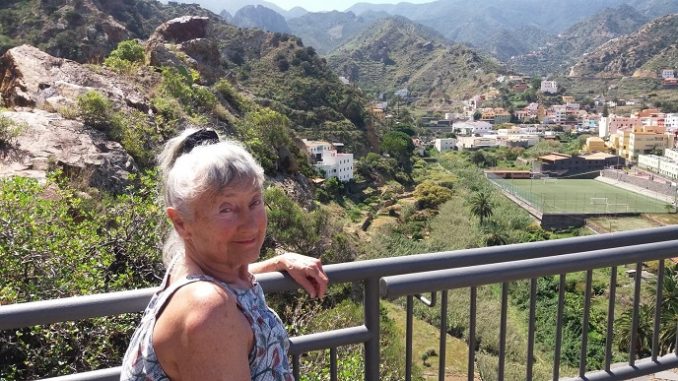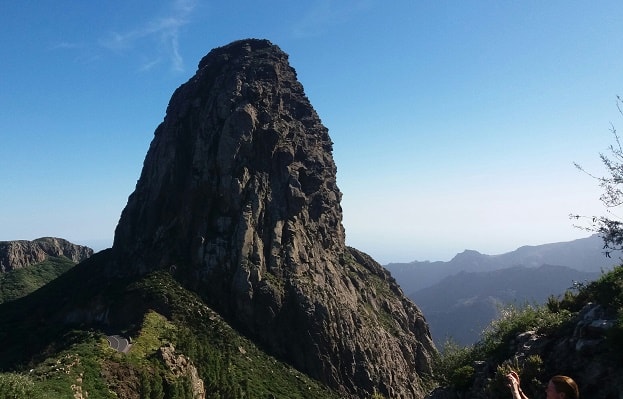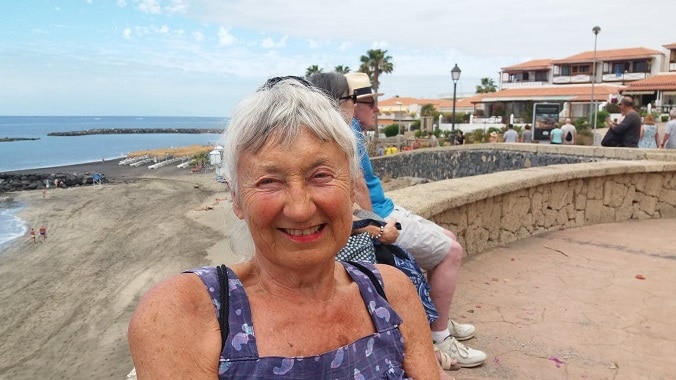
You have to learn to be a bit more thick-skinned – or travel with someone prepared to make a fuss on your behalf – when you’re travelling with a mobility problem. Public transport isn’t necessarily for every member of the public that wants to travel and that’s where the fuss making comes in.
My friend, whose son is in a powered wheelchair, has just had a hard time booking a wheelchair space on a train to Glasgow. The booking clerk had never done it before so as the queue built up behind her, he was on the phone to his boss saying “We’ve got a weird one here.” Well wheelies are not “weird”, they’re members of the public who have as much right to get on a train as the rest of us – especially if the company actually advertises that you can book disabled help!
I recently flew to the Canary Islands and booked disabled help at Gatwick. Brilliant! They put you in a wheelchair with your bags in tow and your helper deals with everything – security, liquids etc. Unfortunately my spare walking stick – I need two sometimes if I’m feeling wobbly – looks like a folded Kalashnikov on the x ray so I often have to open the case and display my awful packing skills to the world.
My metal hip joint has to be explained as well, but on the whole you have a better time as a stickie than your normal traveller.
In the Canaries we stayed in hotels in resorts with a lot of step free surfaces – for wheel chairs and much easier for stick users, and hotels with hoists in case you couldn’t manage steps into the swimming pool.

The Canaries are volcanic and mountainous so you can usually see mountains even from the beach. – a huge pleasure for Thanet dwellers as we have nothing resembling a mountain here. (My ambition to turn Westwood into a mountain with a forest on top and shops inside is something I probably have to let go.)
On Costa Adeje, on Tenerife, the beach is more accessible than anything in Thanet. Board walks for wheel chairs and push chairs, flat stoneless sand, gentle slope into the sea, sun almost every day – and mountains rising behind the town!

The mountains are steep and difficult for walkers but you can get nearly to the top of the highest mountain, Teide on Tenerife, in a cable car. A bus or taxi takes you to the base and you whizz up to the top in a few minutes. What a thrill! When you reach the top of the cable car, you can if you want walk the last bit to the very pointy top. But you’re very high up, the air’s thinner and it’s cold! Take your jumper and gloves! I only managed the steps up to the toilets and then had to sit down and gasp for the half hour my companion took to try for the top. The mountain is 3,700 metres high and beats by three times anything in the UK.
Snowdon, in North Wales, has a train and a visitor centre on the top so if you’re climbing days are over, it’s a good option. Teide is four times higher and feels like a major adventure.
But being disabled friendly has a downside.
In the airport on the way back there were so many people needing disabled help the helpers panicked when a lift went out of order and the flight was delayed while we were all dealt with. My helper, Jesus (my third Jesus in the Canaries – no pressure on being good!) blamed his manager for not counting properly. A moment of discontent in paradise. But when I apologised in my terrible Spanish he was really nice about it. That’s what characterises the Canaries for me – the people are lovely – even when they’re breaking the speed limit rushing your wheelchair to the one working lift and being kind about your minimal grasp of their language.
Lessons for Thanet tourism? More ramps, fewer steps, working lifts and a welcoming attitude towards people with mobility issues – as tourists they’ll help to prop up your economy. And always be lovely even when you’re panicking.

